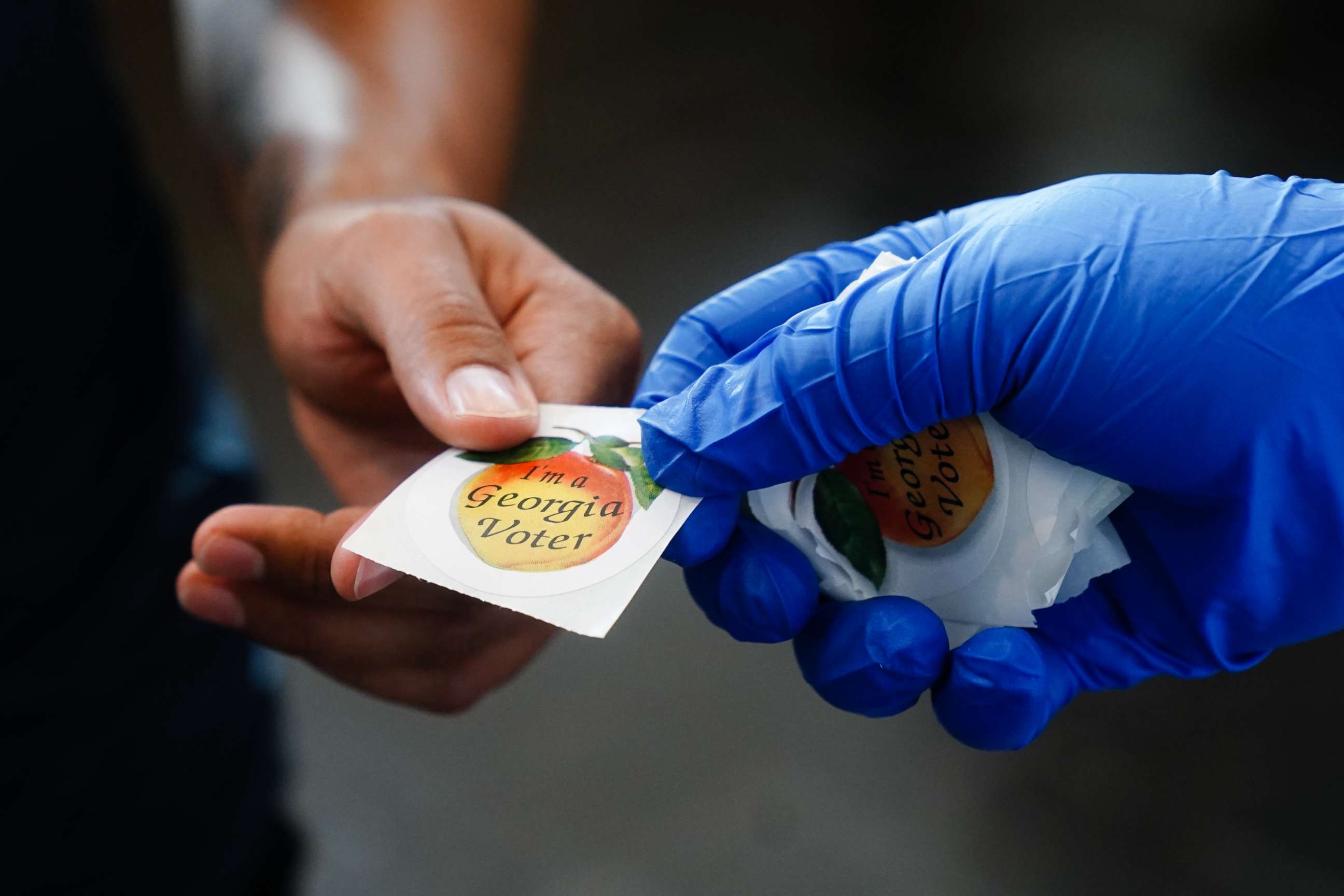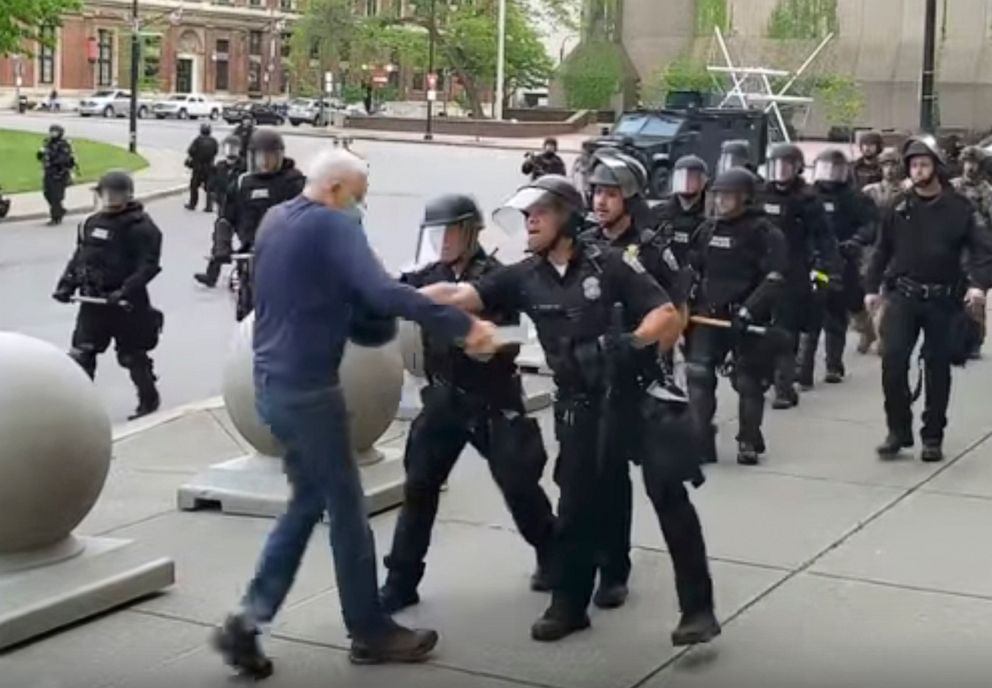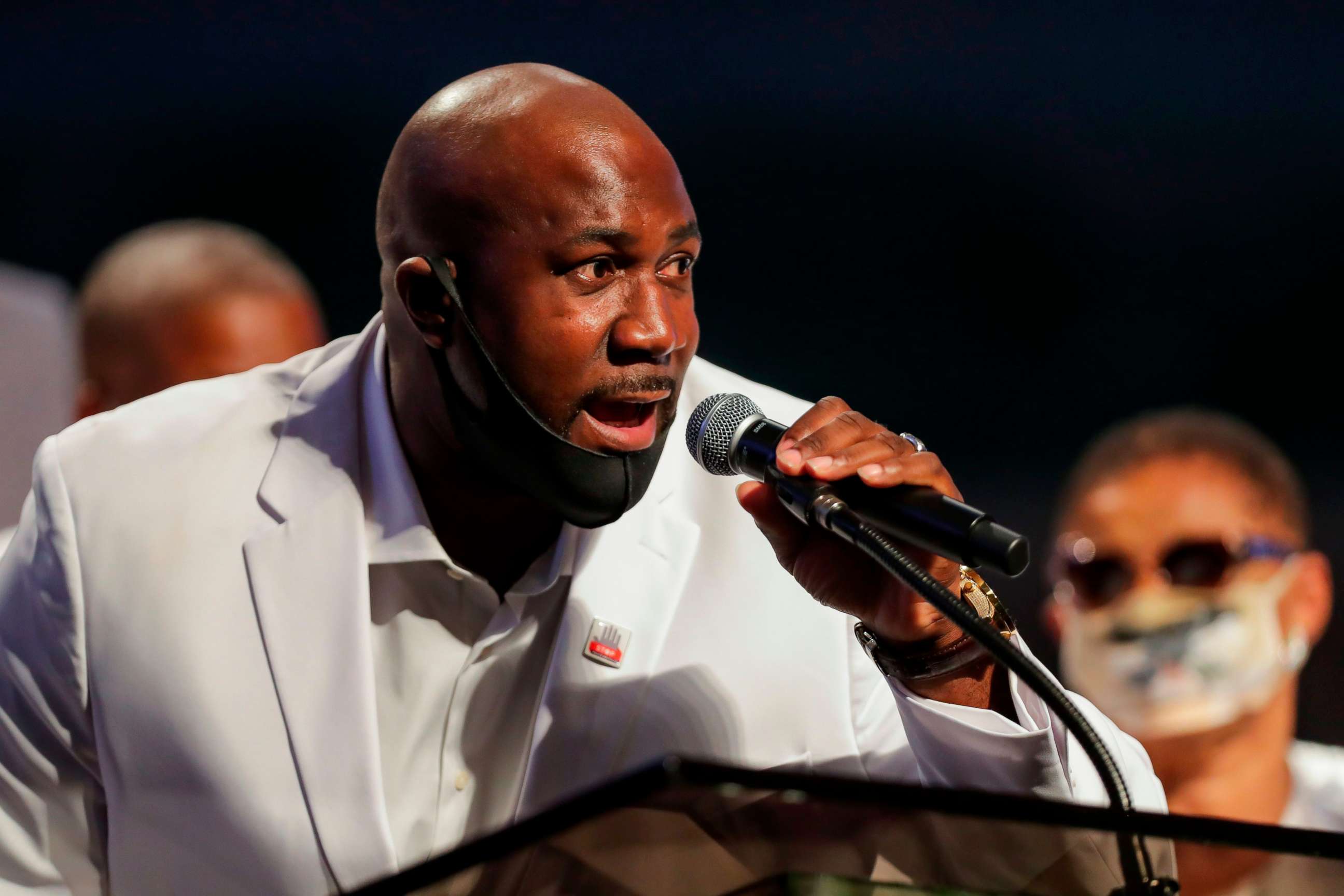The Note: Messy elections become new normal
The scenes out of Georgia on Tuesday have become sadly familiar in the U.S.
The TAKE with Rick Klein
Long lines at polling sites. Malfunctioning machines. Too few poll workers. Shortages of provisional ballots. Unfulfilled requests for mail-in voting. Threats of lawsuits and investigations.
The scenes out of Georgia on Tuesday have become sadly familiar in the United States. Between social distancing and this tense political moment, and with a president raising unfounded suspicions along the way, they represent a scary new normal that seems certain to haunt voting in November.
As Ohio, Wisconsin and a raft of other states can attest, voting -- which isn't pretty under the best of circumstances -- has been especially ugly since the COVID-19 crisis began. States have made on-the-fly adjustments to longstanding and decentralized practices, amid legal fights and recriminations on top of widespread confusion and suspicion.
Georgia, despite its grim history of disenfranchisement, had actually looked like something of a possible success story coming into primary day. The Republican secretary of state had sent absentee ballot applications to all active registered voters, and his deputy told ABC News on Monday that it was already "a successful election," given the "massive amount of turnout in the middle of a pandemic."

The fact that Georgia saw an election-day meltdown despite significant preparations should set off alarm bells in other states. Perhaps most disconcerting for those tasked with figuring out new ways of voting this year, different states have seen things go sideways in much different ways.
"We found ourselves in the midst of both incompetence and malfeasance," Stacey Abrams told reporters Tuesday night.
One other upshot of all the changes and confusion: Americans are increasingly having to wait to see winners declared. In Pennsylvania, a state with little history of mail-in voting, a slate of down-ballot primaries still don't have winners settled -- now more than a week after primary day.
That consequence is drawing relatively little national notice, in part because the presidential primaries are long since settled. But the idea of the presidency being tucked away on Election Night Nov. 3 looks more remote with every state that tries out voting under changing circumstances this year.
The RUNDOWN with MaryAlice Parks
Never one to let a wild conspiracy theory pass him by, President Donald Trump Tuesday stoked division online, while otherwise removing himself from the national conversation taking place in local governments and living rooms coast-to-coast.
Hours before George Floyd was to be laid to rest, Trump made an unfounded allegation against a 75-year protester who was pushed by police in Buffalo, New York, last week during a protest and remains hospitalized.
The president's baseless imaginations about the elderly man seemed to reinforce a clear and larger message from this White House -- that any one moved to stand up against police brutality and racism will be met with suspicion and criticism from this president.

"How reckless, how irresponsible, how mean, how crude. ... At this moment of anguish and anger, What does he do? Pours gasoline on the fire," New York Gov. Andrew Cuomo said in response to the president's tweet.
Not even the president's own chief of staff would defend the tweet. Tuesday most Republicans on Capitol Hill joined their colleagues across the aisle paying respect to Floyd and observing the powerful movement sparked by his death in police custody.
The fact is Americans have been remarkably unified in their response to Floyd's death. More and more, Trump seems to be hollering from an island.
The TIP with Benjamin Siegel
The House Judiciary Committee's hearing on police brutality, the first of its kind since Floyd's death while in police custody, will be the first opportunity to judge whether Democrats and Republicans are having the same discussion on the issue of policing reform on Capitol Hill.
Democrats have invited Philonise Floyd, George Floyd's brother, Floyd family attorney Benjamin Crump, Houston Police Chief Art Acevedo and several other policing and criminal justice experts to testify -- some appearing in person, and others virtually. Dan Bongino, a former Secret Service agent and conservative pundit, Pastor Darrell Scott, a Trump campaign adviser, and Angela Underwood Jacobs, the sister of a Federal Protective Services officer killed during protests in Oakland, California, are the Republican witnesses in the hearing.

While lawmakers and the witnesses across the spectrum have condemned Floyd's killing and the Minneapolis Police Department officers involved, the politicians have yet to find common ground on legislative solutions. Democrats on Monday introduced the Justice in Policing Act, an ambitious reform package that would ban police chokeholds, limit the transfer of military equipment to police departments and improve police training, accountability and transparency.
While Trump's support for "law and order" hasn't wavered since Floyd's death, Republicans have signaled interest in reforms of their own, which could involve changes to police training, accountability and data collection -- but have yet to introduce any concrete plans.
BRINGING AMERICA BACK
Widespread concern about catching COVID-19 at polling places this November is setting the stage for a record-breaking election for votes by mail and election officials are scrambling to amend their absentee ballot rules, boost orders for printed materials and hire and train enough workers to count ballots by hand. Read this story and more by checking out Bringing America Back, an ABC News feature that highlights the day's top stories in economic recovery and medical preparedness amid the coronavirus pandemic.
THE PLAYLIST
ABC News' "Start Here" podcast. Wednesday morning's episode features ABC News Chief Medical correspondent Dr. Jennifer Ashton, who tells us what to know about asymptomatic spread of COVID-19 after the World Health Organization walked back statements suggesting it was rare. 'Nightline' co-anchor Byron Pitts joins us from Houston to recap funeral services for George Floyd. And, ABC News Senior Congressional correspondent Mary Bruce explains how lawmakers are discussing police reforms on Capitol Hill and dodging comments made by President Donald Trump. http://apple.co/2HPocUL
Five Thirty Eight Politics Podcast. Two weeks after a Minneapolis police officer killed George Floyd, sparking protests nationwide and abroad, President Donald Trump's standing in the polls -- and support among some leaders in his own party -- is slipping. In this installment of the FiveThirtyEight Politics podcast, the crew discusses how Americans view the president's handling of both the coronavirus pandemic and the mass protests against police violence. They also look at how young liberals -- many of whom are showing up to the protests -- view both the Democratic Party and its presumptive nominee, former Vice President Joe Biden. https://53eig.ht/2Jb12X2
WHAT YOU NEED TO KNOW TODAY
Download the ABC News app and select "The Note" as an item of interest to receive the day's sharpest political analysis.
The Note is a daily ABC News feature that highlights the key political moments of the day ahead. Please check back tomorrow for the latest.




